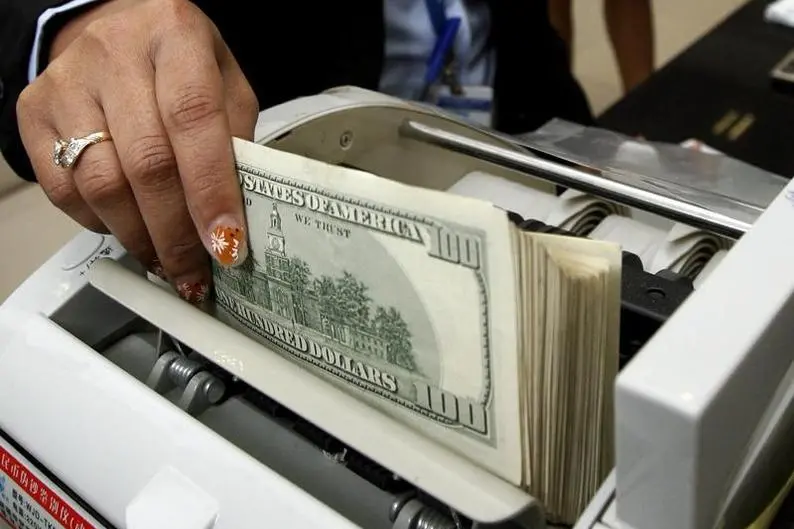PHOTO
TOKYO - The dollar started the week on a shaky footing on Monday as markets took stock of cautious remarks from Federal Reserve Chair Jerome Powell as they waited on a key employment report that could influence the outlook for U.S. interest rates.
Bitcoin grabbed the spotlight in the Asian morning, reaching the $40,000 level for the first time in over a year.
Powell said on Friday it was clear that U.S. monetary policy was slowing the economy as expected, with the benchmark overnight interest rate "well into restrictive territory."
While Powell reiterated that the Fed is prepared to tighten policy further if deemed appropriate, traders were convinced the rate-hike cycle was over.
Markets were pricing in a 60% chance of a rate cut by the March meeting compared with 21% just over a week ago, according to the CME's FedWatch tool.
The U.S. dollar index, which tracks the currency against six major counterparts, was last hovering around Friday's close at 103.28.
U.S. data remains the "primary driver" of the G10 currencies, making non-farm payrolls the "most important risk event" this week, said Kyle Rodda, senior financial market analyst at Capital.com. The closely-watched November jobs report will be released on Friday.
"What we are seeing is the pricing out of U.S. economic exceptionalism, compounded by an unwinding of stretched long positioning in the U.S. dollar."
That means dollar pairs could continue to get a boost depending on U.S. economic data, Rodda said.
Against the yen, the dollar was fetching $146.58 yen , after falling to 146.24 earlier in the session, its lowest since Sept. 11. The yen has recently pulled away from the near 33-year low of 151.92 per dollar touched in the middle of November.
The Australian dollar rose to a fresh four-month high against the greenback of $0.669, while the kiwi ticked up to as high as $0.6222, its strongest level since late July.
Sterling was last trading around $1.2682, easing off a three-month high against the greenback of $1.2733 hit last week.
Currency markets could also be swayed this week by speeches from several European Central Bank officials ahead of a slew of economic data from the region, including revised third quarter gross domestic product data for the euro bloc on Thursday.
Euro zone inflation fell to 2.4% in November, data showed last week, providing fresh fuel to bets that the ECB will cut interest rates quicker than the bank has been suggesting.
The euro was mostly flat on Monday at $1.0874 after ticking down to as low as $1.0829 in the wake of last week's inflation data.
President Christine Lagarde is slated to give a speech later on Monday.
"Lagarde will certainly welcome last week’s Eurozone CPI report but I doubt she will entertain the idea of ECB rate cuts yet," said Carol Kong, a currency strategist at Commonwealth Bank of Australia, adding that the eurozone labour market is still tight.
Elsewhere in cryptocurrencies, bitcoin touched the $40,000 level for the first time in almost a year and a half on bets that U.S. regulators will soon approve stock-market traded bitcoin funds.
(Reporting by Brigid Riley Editing by Shri Navaratnam)





















